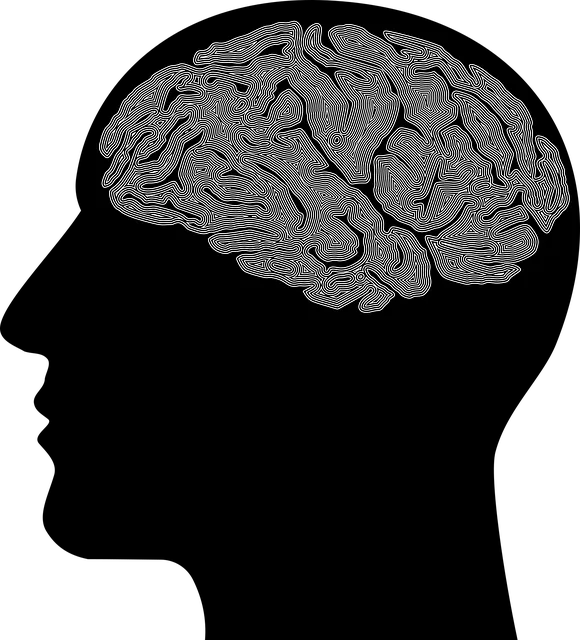The Kaiser Permanente mental health facility in Westminster serves as a vital hub for trauma support, addressing complex emotional healing with specialized services. They reduce stigma, promote mental health awareness, and offer crisis intervention guidance through counseling, therapy, and community outreach. Their holistic approach includes tailored treatment, safe spaces, and innovative techniques to help individuals manage moods, cultivate positive thinking, and develop resilience. By identifying and assessing trauma, along with providing tools for coping and self-care, the facility ensures comprehensive support for long-term mental well-being.
Trauma is a profound and complex issue, profoundly affecting individuals and communities. Understanding its impact is crucial for effective support systems. This article explores the vital role of organizations like the Kaiser Permanente Mental Health Facility in Westminster, dedicated to trauma support. We delve into identifying trauma, best practices for assessment, and strategies for delivering trauma-informed care. Additionally, we examine building resilience through support services, emphasizing the healing power of comprehensive mental health initiatives, particularly within our communities.
- Understanding Trauma and Its Impact on Individuals and Communities
- The Role of Kaiser Permanente Mental Health Facility Westminster in Trauma Support
- Identifying and Assessing Trauma in Patients: Best Practices
- Effective Strategies for Providing Trauma-Informed Care
- Building Resilience and Promoting Healing Through Support Services
Understanding Trauma and Its Impact on Individuals and Communities

Trauma is a profound and complex experience that can have lasting effects on individuals and communities alike. It stems from various sources, including violent incidents, natural disasters, or prolonged exposure to distressing situations. At a personal level, trauma can disrupt one’s sense of safety, leading to anxiety, depression, flashbacks, and even physical symptoms. The impact extends beyond the affected person, creating ripples within families and society at large. Communities often bear the collective weight of traumatic events, experiencing increased stress and potential long-term social and economic repercussions.
In this context, facilities like the Kaiser Permanente mental health facility in Westminster play a pivotal role. They offer specialized trauma support services tailored to address the unique needs of those who have experienced trauma. By providing resources for Mental Illness Stigma Reduction Efforts and promoting Mental Health Awareness, these facilities ensure that individuals receive the necessary Crisis Intervention Guidance. Through counseling, therapy, and community outreach programs, they work towards healing not just the individuals but also fostering a more supportive and resilient community environment.
The Role of Kaiser Permanente Mental Health Facility Westminster in Trauma Support

The Kaiser Permanente Mental Health Facility in Westminster plays a pivotal role in providing trauma support services, specializing in aiding individuals navigate complex emotional healing processes. With a dedicated team of mental health professionals, the facility offers comprehensive care tailored to address the unique needs of trauma survivors. Through individual therapy sessions, group support groups, and evidence-based practices, patients are empowered to manage their moods effectively and cultivate positive thinking patterns.
The facility’s approach emphasizes creating a safe, non-judgmental space where individuals can process their traumatic experiences at their own pace. By integrating innovative therapeutic techniques with traditional care models, Kaiser Permanente Mental Health Facility Westminster ensures that trauma survivors receive holistic support, fostering resilience and promoting long-term mental well-being.
Identifying and Assessing Trauma in Patients: Best Practices

Identifying and assessing trauma in patients is a critical aspect of providing effective support at Kaiser Permanente mental health facility Westminster. This process involves a nuanced understanding of an individual’s history, behaviors, and emotional responses. Best practices include comprehensive intake interviews that explore past experiences, current stressors, and any signs of distress or avoidance. Mental health professionals should create a safe and non-judgmental environment to encourage patients to share their stories.
Trauma-informed assessment tools tailored for various age groups can aid in uncovering hidden traumas. These tools often include self-care practices and self-awareness exercises integrated into the evaluation process, promoting patient engagement and coping strategies. For instance, encouraging patients to maintain a mental wellness journal exercise guidance can help them reflect on their emotions, identify triggers, and track progress over time. This holistic approach ensures that support services cater to the unique needs of each individual, fostering recovery and resilience at Kaiser Permanente Westminster.
Effective Strategies for Providing Trauma-Informed Care

At a Kaiser Permanente mental health facility in Westminster, trauma-informed care is more than just a service; it’s a holistic approach to supporting individuals who have experienced traumatic events. This involves creating a safe and supportive environment where patients feel respected and understood. Staff are trained to recognize the signs of trauma and respond appropriately, ensuring every interaction is trauma-sensitive.
Effective strategies include implementing Mental Wellness Journaling Exercise Guidance to help patients process their experiences and emotions, along with teaching Conflict Resolution Techniques to foster healthier relationships and reduce re-traumatization. Promoting Positive Thinking is also integral, encouraging patients to focus on resilience and hope while navigating their recovery journey. These comprehensive methods not only address the immediate needs of patients but also empower them with tools for long-term mental wellness.
Building Resilience and Promoting Healing Through Support Services

At the Kaiser Permanente mental health facility in Westminster, support services play a pivotal role in fostering resilience and promoting healing among individuals dealing with trauma. These services extend far beyond traditional therapy sessions, offering a holistic approach to care that addresses the complex needs of trauma survivors. By integrating activities such as group support meetings, art therapy workshops, and mindfulness practices, the facility creates a nurturing environment where emotional intelligence can flourish. This, in turn, equips individuals with coping mechanisms to manage their mental health effectively.
One notable aspect of these support services is the emphasis on self-esteem improvement. Through tailored interventions, individuals are empowered to rebuild their sense of self, which is often significantly diminished by traumatic experiences. The facility’s Risk Management Planning for Mental Health Professionals ensures that every patient receives care that respects their unique journey while adhering to best practices in trauma-informed care. This comprehensive approach not only helps individuals recover from past traumas but also enables them to develop the resilience needed to thrive in their daily lives and communities.
The article has explored the multifaceted nature of trauma support, highlighting the significant role that facilities like the Kaiser Permanente Mental Health Facility in Westminster play in providing effective care. By understanding trauma’s profound impact on individuals and communities, healthcare providers can adopt trauma-informed practices to foster healing. Best practices for identifying and assessing trauma, combined with strategies for delivering compassionate care, are essential tools in building resilience. Moving forward, integrating these insights into support services will not only benefit patients but also contribute to the overall well-being of affected communities, ensuring that resources like Kaiser Permanente continue to be valuable assets in the healing process.






